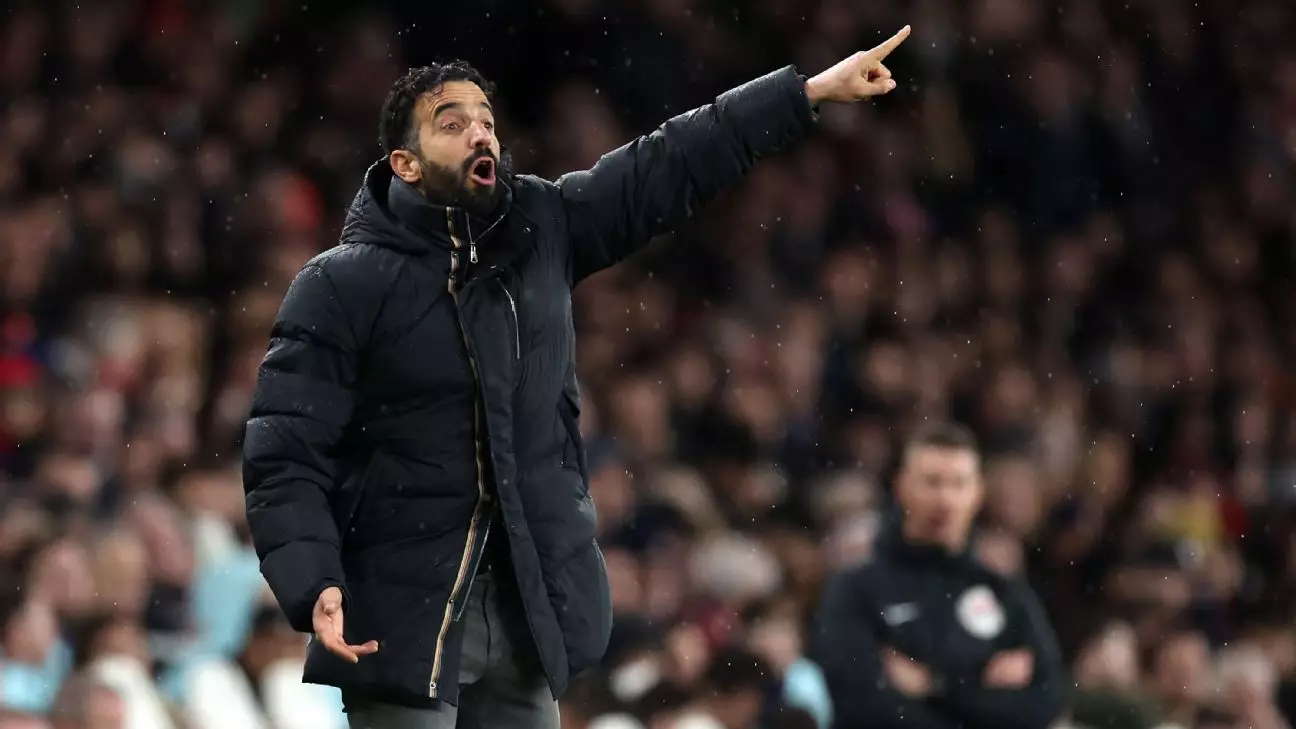The landscape at Manchester United has shifted dramatically following the departure of Erik Ten Hag and the subsequent appointment of Ruben Amorim as head coach. The transition period for players and staff is often rocky, and Manchester United’s current trajectory illustrates this challenge. After Ten Hag’s tenure ended amid disappointing results, Amorim stepped in with the daunting task of revitalizing a club that has been grappling with inconsistent performances. Harry Maguire, United’s steadfast defender, provides critical insight into this transformation, acknowledging the stark contrast between Amorim’s tactical philosophy and that of his predecessor.
Maguire has openly discussed how Amorim’s coaching approach is markedly different from Ten Hag’s, stating that it feels like a complete shift. This assessment hints at a broader conversation regarding how players may need to adapt to various tactical structures throughout their careers. Each manager possesses a unique philosophy that not only dictates training methods but also influences matchday strategies and player roles within the squad. Maguire’s remarks suggest that transitioning from one style to another involves more than just mental adjustments; it requires a fundamental rethinking of gameplay, instincts, and tactical awareness.
While Amorim initially saw success, claiming four wins and one draw in his first seven matches—including an impressive victory against city rivals Manchester City—recent performances indicate the difficulties inherent in shifting strategies. With three consecutive losses since a high-profile derby match, the realities of football are becoming apparent; a promising start may not always translate into sustained success, especially in a league renowned for its competitive nature.
Despite the setbacks, Maguire expressed optimism about the future, emphasizing the collective belief within the squad towards Amorim’s vision. This faith in the manager and coaching staff is crucial during transitional phases, as it helps foster resilience among players who may feel vulnerable to the pressures that accompany drastic changes. Furthermore, Amorim’s demanding nature is indicative of a leader looking to instill discipline and elevate standards; for a club of United’s stature, accountability is fundamental to reclaiming its position amongst the elite in the Premier League.
However, the challenge remains: how can a team that has encountered a significant upheaval in management quickly reconcile these differences and return to winning form? The upcoming match against Newcastle will be a litmus test for both Amorim and the team. The pressure is on, and success is essential, not just for immediate standings, but also in demonstrating that this transition can indeed lead to a revitalized and competitive Manchester United.
As the Premier League unfolds, every match counts in determining the trajectory of the season for United. While challenges abound, the alliance between the players and their manager could, in time, yield fruitful results. Maguire’s reflections offer a glimpse into the complexities surrounding team dynamics in the face of change. For United, navigating this transitional period well could herald a new beginning—one filled with the promise of renewed ambition and hopefully, restored glory on the pitch.

Leave a Reply